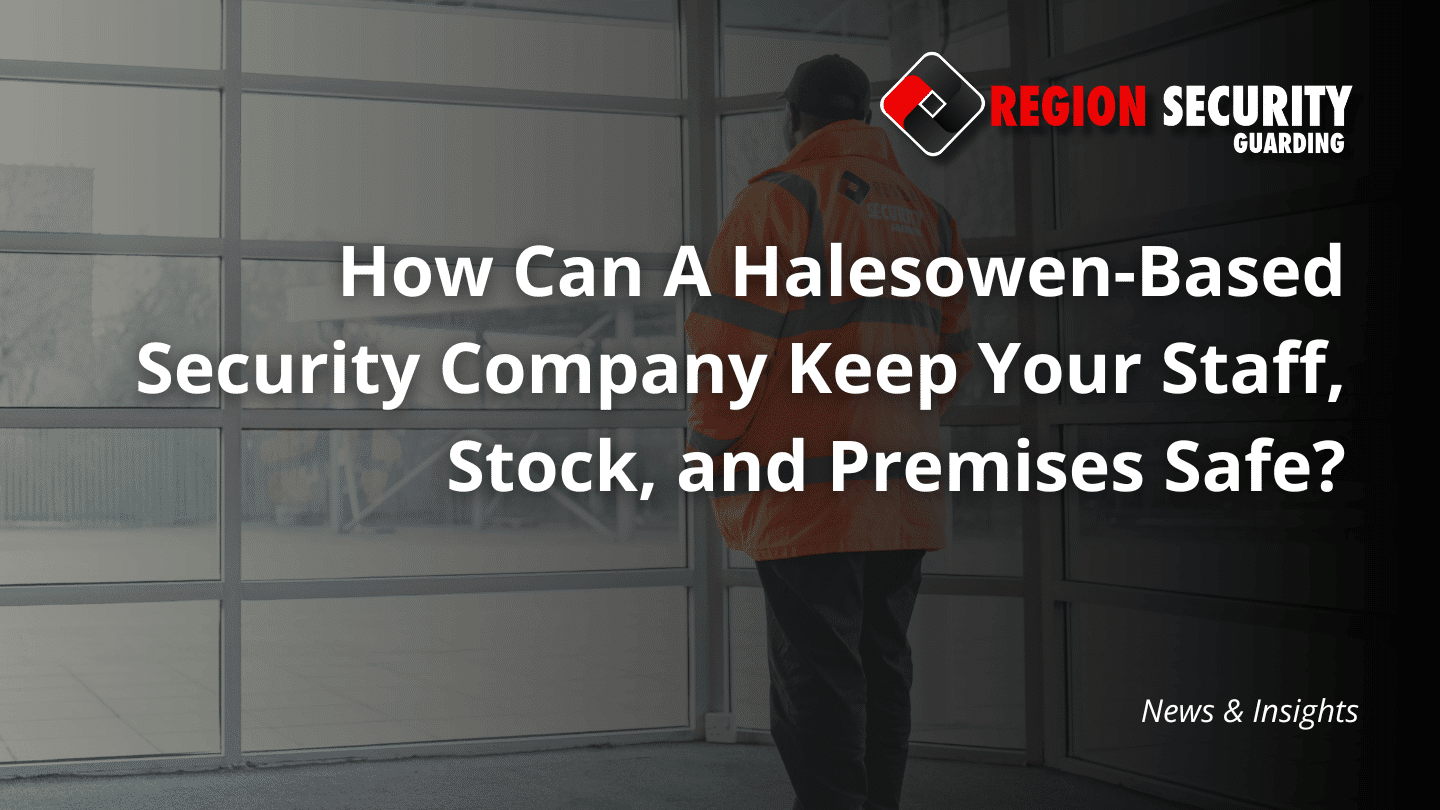Student safety has become a prominent topic of discussion recently, fuelled by initiatives like the ‘Big Night In.’ As a result, university security officers are under increased scrutiny. Many first-year university students live in private accommodation off-campus, making robust security measures, including the presence of trained security guards, essential.
But what does a university security officer do? What are their responsibilities? In this article, we’ll explore the roles and duties of university security officers, their salaries, and whether they are permitted to enter student accommodations.
Table of Contents

What Security Is At A University?
Universities install various security measures to ensure safety. These include:
- Security officers
- Security cameras
- Security alarms
What Is The Role Of A University Security Officer?
University security officers share similarities with school security guards, as their primary responsibility is ensuring the safety and security of university buildings, students, staff, and visitors.
Within university security, there are generally two main types of security personnel: campus security officers and student accommodation security guards.
- Campus Security Officers work on the university grounds, safeguarding students, staff, and facilities during classes and other campus activities. Their presence helps deter unauthorised access and respond to incidents on campus.
- Student Accommodation Security Guards are typically stationed at the reception area of student housing, providing security and assistance to residents. Their role often involves monitoring access, conducting patrols, and addressing safety concerns within the living quarters.
Both roles are vital to creating a secure and supportive environment for the university community.

What Does A University Security Guard Do?
University security guards play a crucial role in maintaining a safe environment for everyone on campus and within nearby student accommodations. Beyond protecting university buildings and the surrounding areas, their responsibilities extend to ensuring the safety of students, staff, and visitors. Here are some of their key tasks:
- Conducting routine patrols around the university campus and student accommodations to identify and address security risks.
- Inspecting doors, windows, and gates to ensure they are secure and properly locked.
- Providing escort services for students, staff, and visitors who may require assistance or feel unsafe.
- Reporting any suspicious activity to the police or relevant authorities promptly.
- Monitoring access to student accommodation from the reception area, ensuring only authorised individuals are allowed entry.
- Identifying and addressing potential threats or hazards that could compromise the safety of university facilities or student housing.
By performing these duties, university security guards help create a secure and welcoming environment for the entire university community.
What Do Security Guards Protect At A University?
University life has become an increasingly popular choice in recent decades. According to HESA, at least 2,862,620 students were enrolled in the UK universities in 2021. With so many students attending and often living on campus, the role of the university security guards has become more critical than ever. Below we outline the key areas and people university personnel are responsible for protecting.
1. University Buildings and Facilities
University campuses and student accommodations often consist of multiple buildings or “blocks,” each with unique security requirements. These may include large car parks, courtyards, and recreational facilities like gyms, cafes, or swimming pools. To address these needs, universities employ a combination of static and mobile security guards:
- Static guards are often stationed at reception or front desks, monitoring access and assisting students and visitors.
- Mobile guards patrol the grounds, particularly at night, to deter unauthorised activity and respond to incidents.
This layered approach ensures that both public-facing and behind-the-scenes security needs are met, safeguarding students and staff in diverse settings.
2. The People
Security guards at universities don’t just protect buildings—they also play a crucial role in safeguarding the people who live, study, and work there.
- Supporting Vulnerable Students: For many students, especially those in their teenage years or from international backgrounds, university marks their first time living away from home. Security personnel provide a reassuring presence, helping to ease concerns and mitigate risks associated with inexperience or unfamiliarity with their surroundings.
- Maintaining Safety: Guards monitor entrances, check IDs, discourage drug use, and intervene in disputes, ensuring students can enjoy a safe and supportive environment.
- Welfare Checks: Security officers may conduct wellness or “safe and well” checks for students who are at risk. While students should always call the police in emergencies, security guards often serve as accessible, on-site support for those feeling unsafe or needing assistance.
- Emergency Preparedness: Security staff are typically trained in first aid and mental health first aid, enabling them to handle emergencies effectively. For instance a security guard might need to assist a student experiencing a medical crisis, such as alcohol poisoning or a spiked drink, where timely intervention could save a life.
While security personnel are not expected to act as therapists or parental figures, they must foster a safe and trusting environment where students feel comfortable reporting security concerns.
3. The Surrounding Town or City
University towns often face reputational challenges due to perceptions of disruptive student behaviour or crime, including theft, vandalism, and drug use. While these stereotypes are not always accurate, the presence of security guards acts as a visible deterrent to potential offenders.
- Crime Prevention: By patrolling university property and student accommodations, security personnel discourage criminal activity and help reduce overall crime rates in the area.
- Community safety: Security officers contribute to a safer environment for both students and local residents by ensuring university-related activities remain orderly and secure.
In summary, university security guards play a multifaceted role, protecting not only the physical campus and accommodations but also the students and broader community. Their presence ensures that universities remain safe spaces for learning, personal growth, and community engagement.

How Much Do University Security Officers Earn?
The salary of a university security officer can vary based on factors such as the type of position, level of experience, and location. According to Glassdoor, security guards working in student accommodation may earn up to £24,473 per year, while campus security officers typically earn a similar annual salary of around £25,531. These figures can differ depending on the university and region.
Can Security Guards Enter Student Accommodation?
If you live on campus in student accommodation, security guards cannot enter your living space without your permission or without providing at least 24 hours’ notice. However, exceptions are made in the event of emergencies, such as a fire or flood, where immediate action is required to ensure safety and minimise harm.
In such cases, security guards are authorised to enter student accommodation to address the danger and secure the premises. This policy balances respecting student privacy with maintaining safety and security.
Why Do Universities Need Security?
Universities, much like schools, are bustling and dynamic environments. This constant activity, while fostering learning and collaboration, can also make universities susceptible to criminal activities such as vandalism, break-ins, theft, and even violent crimes.
Security officers play a crucial role in mitigating these risks by serving as both a deterrent and a responsive force. Here’s how they contribute to campus safety:
- Visible deterrence: A strong security presence on campus can discourage potential criminals. The sight of uniformed guards patrolling or stationed at key locations sends a clear message that unlawful activities will not go unnoticed.
- Access Control: Security personnel often conduct ID checks at student housing and other restricted areas, ensuring that only authorised individuals can enter. This prevents unauthorised access and enhances the overall safety of students and staff.
By maintaining a proactive and visible presence, university security officers help create a safe and secure environment where students can focus on their education without unnecessary distractions or concerns.
So, What Does A University Security Officer Do?
University security guards typically work in one of two primary areas: on campus or within student accommodations.
Campus security guards are responsible for conducting regular patrols around the university grounds, ensuring the safety of students, staff, and visitors while protecting university facilities. Student accommodation security officers are often stationed at the reception area of student housing, monitoring access, assisting residents, and addressing security concerns specific to living spaces.
Regardless of their specific location, the core responsibility of all university security officers remains the same: to deter criminal activity and provide a safe environment for the university community, including students, staff, and visitors.
For more insights into the latest security guard news, including updates on where security guards work and what security guards do, explore our blog for the latest new and articles.
Business Security You Can Rely On
Trusted by leading businesses nationwide for reliable, 24/7 protection.
or call 0330 912 2033

We have used Region security for quite a while now. Top notch service, great guards and helpful staff. We love our guards and the team for all of their help / work. No need to try the other companies at all."
Andy Yeomans - Jones Skips Ltd
Great company, professional services, friendly guards and helpful at times when required."
Rob Pell - Site Manager
A professional and reliable service. Always easy to contact and has never let us down with cover. No hesitation in recommending and competitively priced also. After using an unreliable costly company for several years it is a pleasure to do business with Region Security"
Jane Meier - Manager
Region Security were very helpful in providing security for our building. We had overnight security for around 4 months. The guards themselves were professional, easy to reach and adapted very well to our specific needs. Would definitely recommend Region for security needs.
Lambert Smith Hampton
Great service. Reliable and professional and our lovely security guard Hussein was so helpful, friendly but assertive with patients when needed. He quickly became a part of our team and we would love to keep him! Will definitely use this company again
East Trees Health Centre
Fantastic Service from start to finish with helpful, polite accommodating staff, we have used Region Security a few times now and always been happy with what they provide.
Leah Ramsden - Manager




